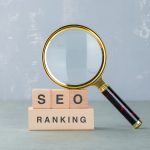Last updated: September 2025
The digital marketing landscape has fundamentally shifted. What worked in 2022 is obsolete today, and businesses trying to navigate this complexity alone are falling behind their competition. In 2025, partnering with a specialized digital agency isn’t just an advantage—it’s become essential for sustainable growth.
Here’s why smart businesses are choosing digital agencies to drive their lead generation and traffic growth, and why going it alone might be costing you more than you realize.
The 2025 Digital Marketing Reality Check
The Complexity Explosion
Digital marketing has evolved from simple Google Ads and Facebook posts to a sophisticated ecosystem requiring expertise across multiple domains:
- Multi-platform attribution modeling across 8+ touchpoints
- AI-powered personalization engines that adapt in real-time
- Privacy-first marketing strategies navigating iOS updates and cookie deprecation
- Voice and visual search optimization for emerging technologies
- Advanced automation workflows integrating CRM, email, and social platforms
- Compliance management across GDPR, CCPA, and evolving privacy regulations
The average business now needs to master 15-20 different marketing tools and platforms to remain competitive. Most internal teams simply can’t keep pace with the rapid changes and technical requirements.
The Cost of DIY Marketing in 2025
Companies attempting to handle digital marketing internally face hidden costs that often exceed agency partnerships:
Tool Stack Expenses: $2,000-8,000/month for enterprise-level marketing tools Hiring Costs: $180,000-300,000 annually for experienced marketing professionals
Training Investment: 40-60 hours monthly keeping up with platform changes Opportunity Cost: 25-40% lower performance compared to specialist-managed campaigns Mistake Recovery: $10,000-50,000+ in wasted ad spend from inexperienced management
A mid-sized company can easily spend $400,000-600,000 annually on internal marketing efforts that deliver results an experienced agency achieves for $150,000-250,000 while delivering superior outcomes.
Why Digital Agencies Drive Better Results in 2025
1. Specialized Expertise Across All Channels
Modern digital agencies employ specialists rather than generalists. Your campaign benefits from:
Dedicated Google Ads Specialists who manage $500K+ monthly budgets and understand advanced bidding strategies, audience segmentation, and conversion optimization techniques that take years to master.
Content Marketing Experts who understand SEO evolution, E-E-A-T requirements, and how to create content that ranks in both traditional search and AI-powered search results.
Social Media Strategists who stay current with algorithm changes across platforms and know how to adapt content for TikTok’s trending audio, LinkedIn’s professional audiences, and Instagram’s shopping features.
Analytics Professionals who can set up proper tracking, interpret complex data patterns, and provide actionable insights that drive decision-making.
2. Advanced Technology Access
Leading digital agencies invest $50,000-200,000 annually in premium tools and technologies that would be cost-prohibitive for individual businesses:
Enterprise Analytics Platforms providing advanced attribution modeling and customer journey mapping AI-Powered Optimization Tools that automatically adjust campaigns based on performance patterns Advanced Testing Frameworks for multivariate testing across multiple channels simultaneously Proprietary Automation Systems built specifically for lead generation and nurturing
These tools often provide 20-30% better performance than standard platforms, but only make financial sense when spread across multiple client accounts.
3. Cross-Industry Intelligence
Agencies work with dozens of clients across various industries, providing unique insights:
- Competitive Intelligence gathered from managing campaigns in your industry
- Cross-pollination of Strategies that work in adjacent markets
- Early Access to beta features and platform updates
- Benchmarking Data to understand realistic performance expectations
- Trend Identification months before they become mainstream
This collective knowledge accelerates your campaigns beyond what internal teams can achieve working in isolation.
4. Scalability and Flexibility
Digital agencies provide scalability that internal teams can’t match:
Rapid Scale-Up: Launch comprehensive campaigns within weeks rather than months Seasonal Adjustment: Quickly adapt team size and focus areas based on business cycles
Crisis Response: Immediately pivot strategies during market disruptions Geographic Expansion: Leverage expertise in new markets and regions Channel Diversification: Quickly test and optimize new platforms as they emerge
The Lead Generation Advantage: What Agencies Deliver
Systematic Lead Generation Funnels
Professional agencies don’t just drive traffic—they engineer complete lead generation systems:
Top-of-Funnel Optimization
- Strategic content marketing that attracts ideal prospects
- Paid advertising campaigns with precise audience targeting
- Social media strategies that build brand awareness and trust
- SEO optimization for high-intent commercial keywords
Middle-of-Funnel Nurturing
- Email marketing automation sequences that educate and build relationships
- Retargeting campaigns that re-engage interested prospects
- Content offers and lead magnets that capture contact information
- Progressive profiling to better understand prospect needs
Bottom-of-Funnel Conversion
- Landing page optimization with conversion rate testing
- Sales-qualified lead scoring and routing systems
- CRM integration and sales enablement tools
- Follow-up automation that prevents leads from falling through cracks
Data-Driven Optimization
Agencies use sophisticated analytics to continuously improve lead quality and quantity:
Advanced Attribution Modeling that identifies which channels and touchpoints drive the highest-value leads, allowing for better budget allocation and campaign optimization.
Predictive Analytics that identify characteristics of leads most likely to convert, enabling more precise targeting and personalization.
Conversion Rate Optimization through systematic testing of headlines, offers, form fields, and page layouts to maximize lead capture rates.
Customer Lifetime Value Analysis that helps prioritize marketing efforts toward prospects with the highest long-term value potential.
Quality Traffic That Actually Converts
Beyond Vanity Metrics
Many businesses focus on traffic volume, but agencies optimize for traffic quality:
Intent-Based Targeting ensures visitors are actively searching for your solutions rather than just browsing Qualified Traffic Sources that have higher conversion probability and lower cost per acquisition Audience Segmentation that delivers personalized experiences increasing engagement and conversion rates Conversion Path Optimization that removes friction points and guides visitors toward desired actions
Multi-Channel Integration
Agencies excel at creating cohesive experiences across all touchpoints:
Consistent Messaging across paid ads, organic content, email campaigns, and social media Cross-Channel Retargeting that reinforces your value proposition through multiple interactions Unified Analytics that provide complete customer journey insights Synchronized Campaigns where each channel supports and amplifies the others
The ROI Reality: Why Agencies Pay for Themselves
Measurable Performance Improvements
Businesses working with professional digital agencies typically see:
Lead Generation Increases: 40-150% improvement in qualified lead volume within 6-12 months Cost Per Acquisition Reduction: 25-60% decrease in customer acquisition costs through optimization Conversion Rate Improvements: 30-80% higher conversion rates through systematic testing and optimization Revenue Growth: 50-200% increase in marketing-attributed revenue within the first year
Speed to Results
Internal teams often take 6-18 months to achieve what experienced agencies accomplish in 2-6 months:
Faster Campaign Launch: Agencies can launch comprehensive campaigns within 2-4 weeks Quicker Optimization Cycles: Experienced teams identify and fix issues faster Immediate Access to Best Practices: No learning curve or trial-and-error period Established Vendor Relationships that provide preferential treatment and faster support
Risk Mitigation
Agencies provide insurance against costly mistakes:
Platform Compliance Expertise prevents account suspensions and penalties Budget Protection through proper campaign monitoring and automatic safeguards Reputation Management strategies that protect brand image during growth phases Crisis Response Plans for handling negative feedback or market disruptions
Choosing the Right Digital Agency Partnership
Red Flags to Avoid
Guaranteed Rankings or Immediate Results: Legitimate agencies provide realistic timelines and outcome ranges One-Size-Fits-All Packages: Your business needs custom strategies, not template solutions Lack of Industry Experience: Choose agencies with proven success in your market or similar industries Poor Communication: Agencies should provide regular updates and transparent reporting No Clear Metrics: Avoid partnerships without defined KPIs and measurement frameworks
What to Look For
Comprehensive Service Offerings that cover all aspects of digital marketing rather than just one specialty Proven Track Records with case studies and client references from similar businesses Transparent Reporting with regular updates on campaign performance and strategic recommendations
Cultural Fit where agency values and communication styles align with your business Growth-Oriented Mindset focused on scaling your business rather than just managing campaigns
Partnership Structure Options
Retainer-Based Relationships provide dedicated resources and strategic planning for ongoing growth Project-Based Engagements for specific initiatives like website redesigns or campaign launches Performance-Based Agreements where agency compensation ties directly to results achieved Hybrid Models combining base retainers with performance bonuses for exceptional results
The Future of Agency Partnerships
Evolving Capabilities
Digital agencies are rapidly expanding their capabilities to address 2025’s challenges:
AI Integration Expertise helping businesses implement and optimize artificial intelligence tools Privacy-First Strategies navigating increasing data restrictions while maintaining effectiveness Omnichannel Orchestration creating seamless experiences across all customer touchpoints Predictive Marketing using advanced analytics to anticipate customer needs and behaviors
Long-Term Strategic Value
The best agency partnerships extend beyond campaign management:
Strategic Business Consulting that aligns marketing efforts with overall business objectives Market Expansion Support for entering new geographic or demographic markets Product Launch Expertise ensuring new offerings reach the right audiences effectively Competitive Intelligence providing ongoing insights about market positioning and opportunities
Making the Investment Decision
Cost-Benefit Analysis Framework
When evaluating agency partnerships, consider:
Total Cost of Internal Marketing
- Salaries and benefits for marketing team members
- Tool and software licensing fees
- Training and professional development costs
- Opportunity cost of suboptimal performance
Agency Investment Required
- Monthly retainer or project fees
- Additional costs for premium tools or services
- Setup and onboarding expenses
Expected Performance Improvement
- Increased lead generation volume
- Higher lead quality and conversion rates
- Reduced customer acquisition costs
- Faster time to market for new initiatives
Risk Mitigation Value
- Protection against costly mistakes
- Compliance and reputation management
- Crisis response capabilities
- Insurance against team turnover
Taking Action: Your Next Steps
Immediate Evaluation Questions
Ask yourself:
- Are we achieving our lead generation and traffic goals consistently?
- Do we have expertise across all necessary digital marketing channels?
- Are we keeping pace with industry changes and competitor activities?
- Is our current marketing ROI meeting business growth requirements?
- Do we have capacity to scale marketing efforts as business grows?
If you answered “no” to any of these questions, it’s time to seriously consider an agency partnership.
Implementation Timeline
Month 1: Research and evaluate potential agency partners Month 2: Conduct interviews and review proposals
Month 3: Begin partnership with strategy development and campaign planning Months 4-6: Launch optimized campaigns and begin seeing improved results Months 7-12: Scale successful strategies and explore new growth opportunities
Conclusion: The Competitive Advantage of Professional Partnership
In 2025’s competitive digital landscape, attempting to handle lead generation and traffic growth internally isn’t just inefficient—it’s a strategic disadvantage. The complexity of modern digital marketing, combined with the rapid pace of change, requires specialized expertise that most businesses can’t develop and maintain in-house.
Digital agencies provide more than just campaign management; they deliver strategic advantages that drive sustainable growth. From advanced technology access and cross-industry insights to scalable expertise and risk mitigation, the right agency partnership transforms your marketing from a cost center into a competitive advantage.
The businesses that will thrive in 2025 and beyond aren’t those trying to do everything themselves—they’re the ones smart enough to partner with experts who can accelerate their growth while they focus on what they do best: running their core business.
The question isn’t whether you can afford to work with a digital agency. The question is whether you can afford not to.
Ready to transform your lead generation and traffic growth? Our team specializes in building high-performance marketing systems that drive qualified leads and sustainable growth. Contact us for a free marketing audit and custom growth strategy consultation.






